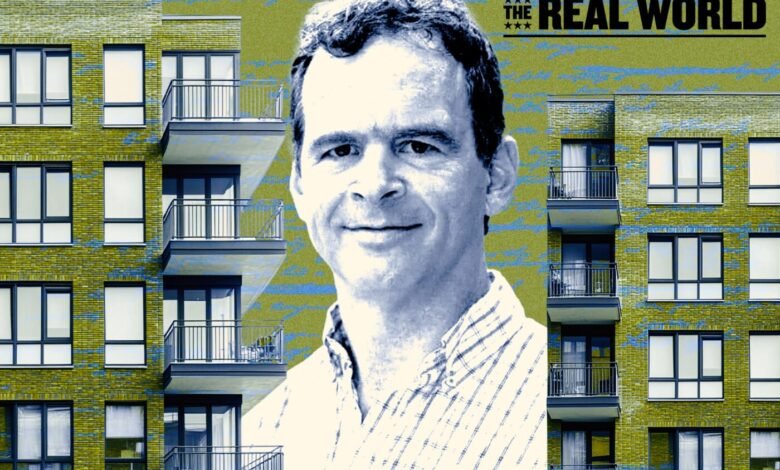Landlord Henry Gifford Has Something to Say About Rent

No amount of evidence will dissuade some people that landlords work together, implicitly or explicitly, to keep rents high. This idea has been reinforced by the advent of software that advises landlords how much to charge.
Even when the pandemic exodus from the city led landlords to cut rents by 30 percent, offer concessions — or both — the conspiracy theorists dismissed it as a fluke.
More recently, in cities and regions where lots of apartments were built, but demand to live in them didn’t keep pace, rents fell. Austin and Nashville were two prominent examples, as was the Sun Belt as a whole.
I recall one YIMBY-hater on X countering my arguments by saying, “All you have is Austin.” As if that were the only example.
But let’s talk about Austin. People and companies flocked there during the pandemic, and developers responded by putting up rental buildings. They came online just as the novelty of living there wore off — a perfect storm for multifamily owners. Austin rents dropped 16 percent last year.
After I mentioned this in a recent column, a reader named Henry Gifford validated my point:
“Very true about rents in Austin. I own a bunch of rentals there, and during Covid, when nobody was building, I got increases on every renewal,” he emailed.
“Since then, there is a lot of new product on the market, and my rents have stayed the same, or in one case, I lowered a rent from $2,200 to $2,000. I compete with new six-story ‘loft’ buildings with a coffee shop and gym on the ground floor.”
In Gifford’s estimation, people are always economic rational actors. I wish that were true, because a friend of mine in Texas wouldn’t have raided his retirement account four times to pay for shopping sprees.
On the other hand, once freed from his office by remote work, my friend did something rational: He moved from a $1,200 rental in Austin to a similar-sized condo in Arlington with an $800-a-month mortgage payment. (Four friends put up the down payment.)
But I digress.
I took the opportunity to ask Gifford, aka “The Boiler Man,” if RealPage had helped him make decisions on what rents to charge. That seems like the economically rational thing to do, if indeed the software suggests the highest possible rent that would still allow an owner to keep buildings full.
Gifford, however, does not see that as rational.
“I think maximizing rents to the very limit that the market can bear is not the smartest strategy, because I think it increases turnover, which is terribly expensive, and because I have a good local manager who I don’t want to get burned out,” he wrote. “The only advantage I can think of for maximizing rents is to show a bank or investors that the multiples are great.”
He went on.
“Presumably many of the people using the software have at least a working idea of the dollar cost of a turnover,” Gifford wrote. But he did not think the software would offer such guidance unless people start talking about it, and suggested, “Maybe you can start that discussion.”
Here you go, Henry:
Lots of landlords give their reliable, low-maintenance tenants a break at renewal, not just to avoid the cost of a vacancy but to minimize headaches. Gifford, however, takes retention to the next level.
About a month ago, a couple moved into one of his houses in Austin and soon complained about noise from the AC/heating mini-split. He didn’t call a repair crew because “they do terrible work, and in my experience don’t even own the tools necessary for a basic installation.”
Instead, Gifford grabbed his 50-state EPA refrigerant card and flew from New York City to Austin.
The problem, he found, was a dirty fan. Unfortunately, it was Saturday, and “local AC supply houses usually won’t sell to anyone who is not a local contractor for mafia-like reasons.”
He flew home, ordered the cleaning equipment, flew back a few days later and did the work. When the tenants remarked that most owners don’t care that much, Gifford, 65, a landlord for 45 years, replied, “I have never worked. I just do fun stuff and people pay me.”
In front of his property manager, he made sure to say they don’t like to raise rents for tenants who stay because replacing tenants means paying a broker, cleaning, painting and missing rent during the vacancy.
A few days later the tenants asked the manager if they could build a chicken coop. Many landlords would reject that out of hand. Not Gifford. He saw a chance to lock in long-term customers.
“If they build a chicken coop,” he reasoned, “they will probably stay for years.”
It doesn’t always work out, of course. Some years ago, a tenant asked if he could plant bushes. “I handed him my credit card and told him to go to Home Depot and buy all the bushes he wanted, knowing that people who plant gardens tend to stay,” Gifford recalled.
The tenant moved after one year.
“But hey,” said Gifford, “I tried.”
Read more

New York bans rent-setting software

Justice Department goes after big landlords in RealPage lawsuit

The Daily Dirt: Nothing like being there




